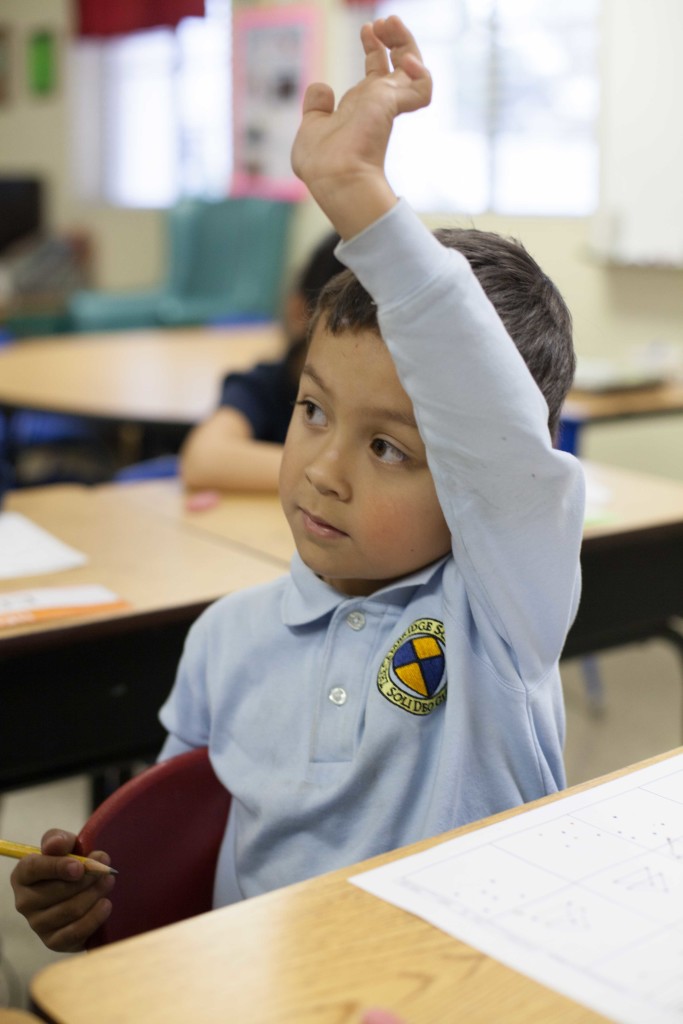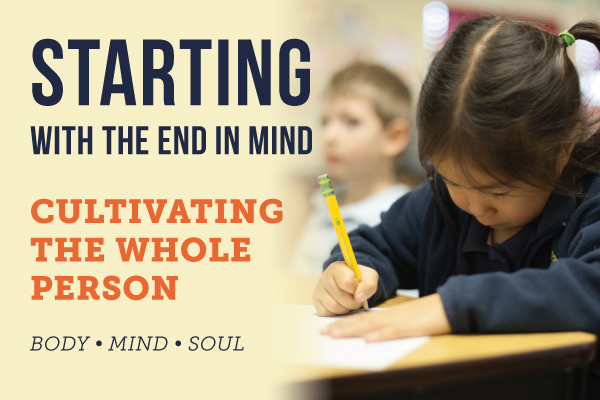
In Kindergarten and Beyond
The Cambridge School purposes to graduate wise and virtuous scholars who are defined by the Portrait of a Graduate. Thus, the education at Cambridge begins with that end in mind. The destination is set and the journey is long and rigorous. Our goal is to set a course in the right direction at the beginning so that the journey is filled with joy and a real sense of accomplishment as they reach the destination.
Mind
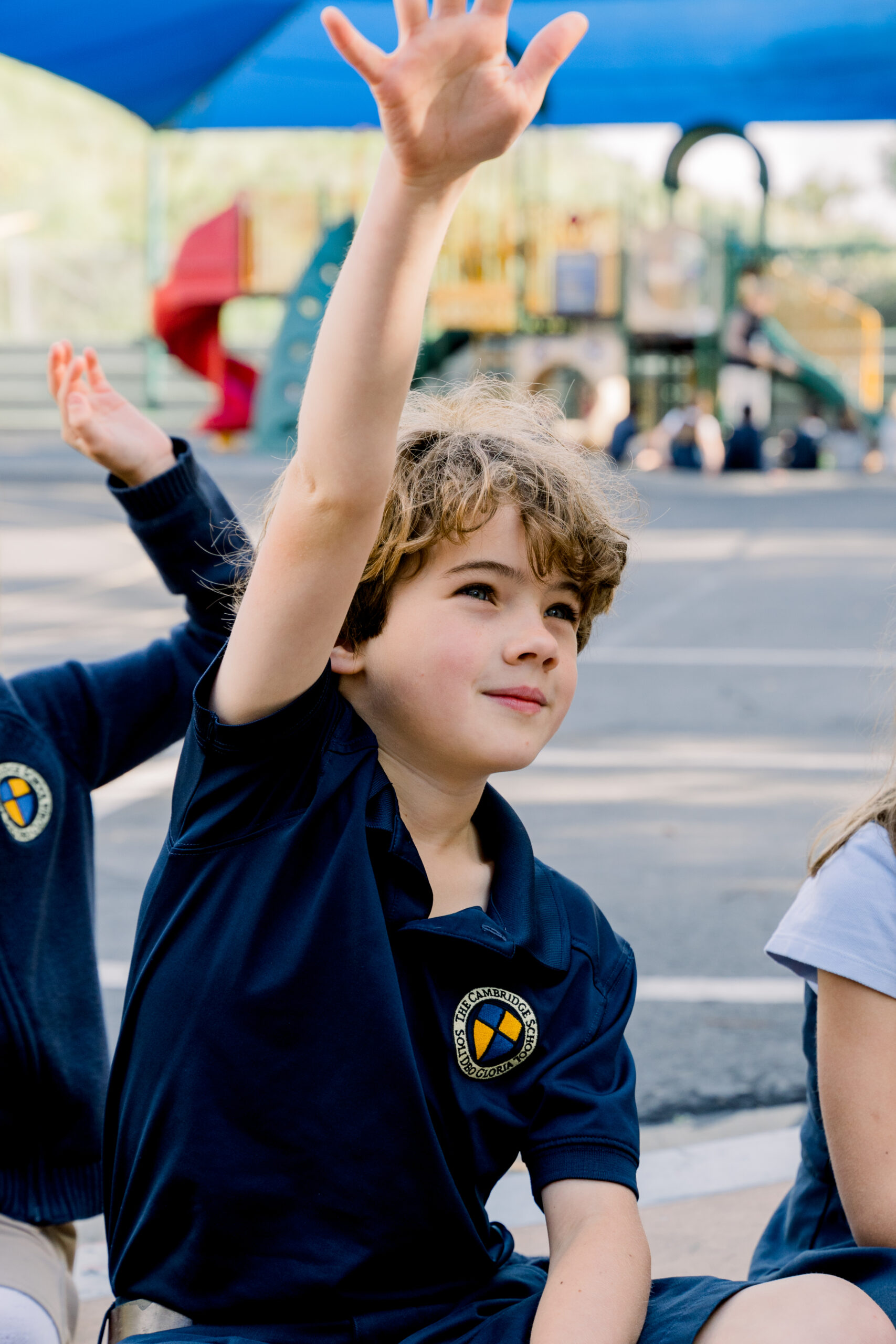 At Cambridge, a special effort is made to ensure that all students receive the specific support they need to be successful in kindergarten and beyond. In an effort to proactively support students at the beginning of their academic careers, we conduct a developmental screening for all Kindergarteners during the month of September. This assessment addresses the underlying skills that support reading, writing and math, which are foundational to a life of learning. The student’s strengths and any areas that may need support are shared with both the parents and the student’s teacher. Our Student Academic Services Director meets with the families, as well, to go over any suggestions for how to strengthen the student’s skills and to demonstrate fun, interactive activities that can be done at home. If there is a need for further support, we offer families a program that consists of activities specifically chosen according to that student’s needs.
At Cambridge, a special effort is made to ensure that all students receive the specific support they need to be successful in kindergarten and beyond. In an effort to proactively support students at the beginning of their academic careers, we conduct a developmental screening for all Kindergarteners during the month of September. This assessment addresses the underlying skills that support reading, writing and math, which are foundational to a life of learning. The student’s strengths and any areas that may need support are shared with both the parents and the student’s teacher. Our Student Academic Services Director meets with the families, as well, to go over any suggestions for how to strengthen the student’s skills and to demonstrate fun, interactive activities that can be done at home. If there is a need for further support, we offer families a program that consists of activities specifically chosen according to that student’s needs. 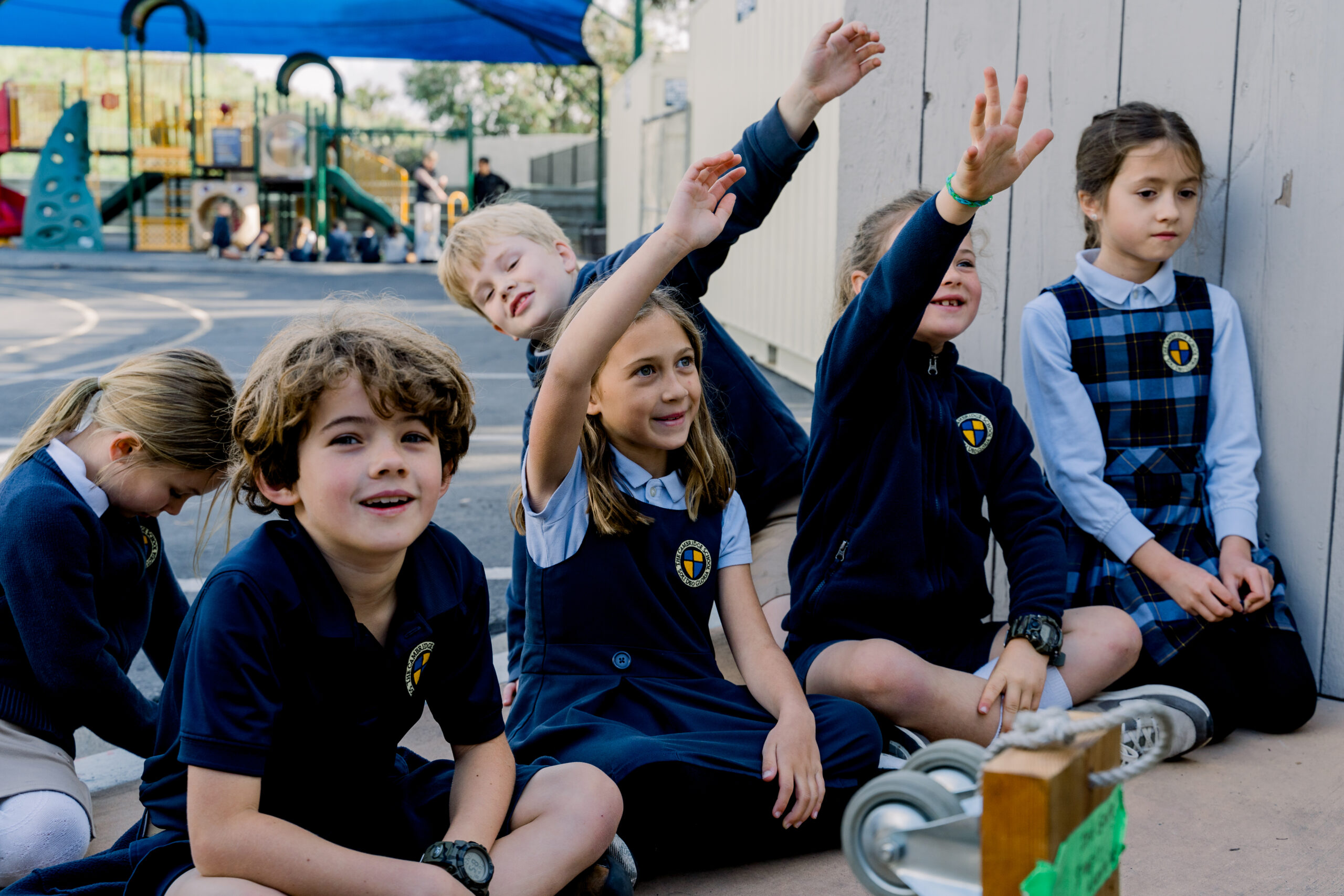 We have seen this one-on-one instruction quickly expand the student’s skills and confidence. Kindergarten teachers receive the same screening reports as the parents along with an overview of their class, listing which students could benefit from additional support in a specific skill area. This information helps each teacher target instruction that promotes academic success for all the students. The Cambridge School is committed to the formation of wise and virtuous students. Taking a proactive approach at the foundation of this education by addressing necessary skill areas before a student experiences academic difficulty is one way The Cambridge School is taking action to fulfill its mission.
We have seen this one-on-one instruction quickly expand the student’s skills and confidence. Kindergarten teachers receive the same screening reports as the parents along with an overview of their class, listing which students could benefit from additional support in a specific skill area. This information helps each teacher target instruction that promotes academic success for all the students. The Cambridge School is committed to the formation of wise and virtuous students. Taking a proactive approach at the foundation of this education by addressing necessary skill areas before a student experiences academic difficulty is one way The Cambridge School is taking action to fulfill its mission.
Soul
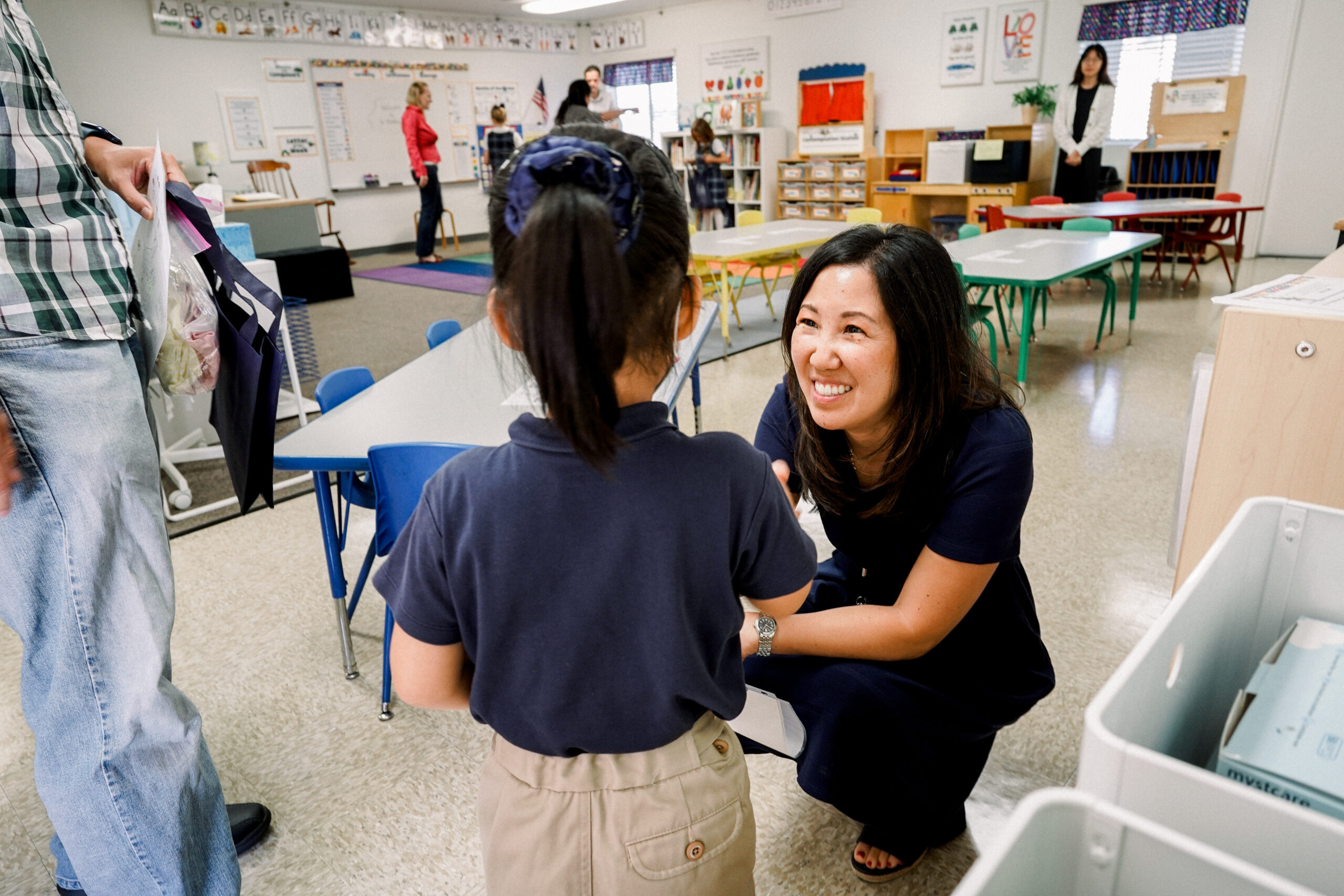 Additionally, the kindergarten students are given an introduction to metacognition, the awareness and understanding of one’s own thought processes. While unusual for a kindergarten program, this introduction to metacognition beautifully supports the classical model of education. At Cambridge, the kindergarten students enjoy “thinking about their thinking.” The students discuss how cognitive functions such as “thinking things through before responding,” not only benefit them in doing a specific task, but also how this principle is helpful in all school subjects, the playground, at home and in their communities. The students are learning that there is a divine thread in life; their classroom experience is not disjointed from the rest of their lives but connected. It is incredible to hear a five year old pause before tackling a difficult problem and tell you that they are “thinking things through before responding.” Life-long principles and deep thinking are being introduced at this foundational grade level that will grow, with careful cultivation, into rightly ordered affections and strong communication skills throughout their lives— working hand in glove with the later stages of classical education.
Additionally, the kindergarten students are given an introduction to metacognition, the awareness and understanding of one’s own thought processes. While unusual for a kindergarten program, this introduction to metacognition beautifully supports the classical model of education. At Cambridge, the kindergarten students enjoy “thinking about their thinking.” The students discuss how cognitive functions such as “thinking things through before responding,” not only benefit them in doing a specific task, but also how this principle is helpful in all school subjects, the playground, at home and in their communities. The students are learning that there is a divine thread in life; their classroom experience is not disjointed from the rest of their lives but connected. It is incredible to hear a five year old pause before tackling a difficult problem and tell you that they are “thinking things through before responding.” Life-long principles and deep thinking are being introduced at this foundational grade level that will grow, with careful cultivation, into rightly ordered affections and strong communication skills throughout their lives— working hand in glove with the later stages of classical education.
Body
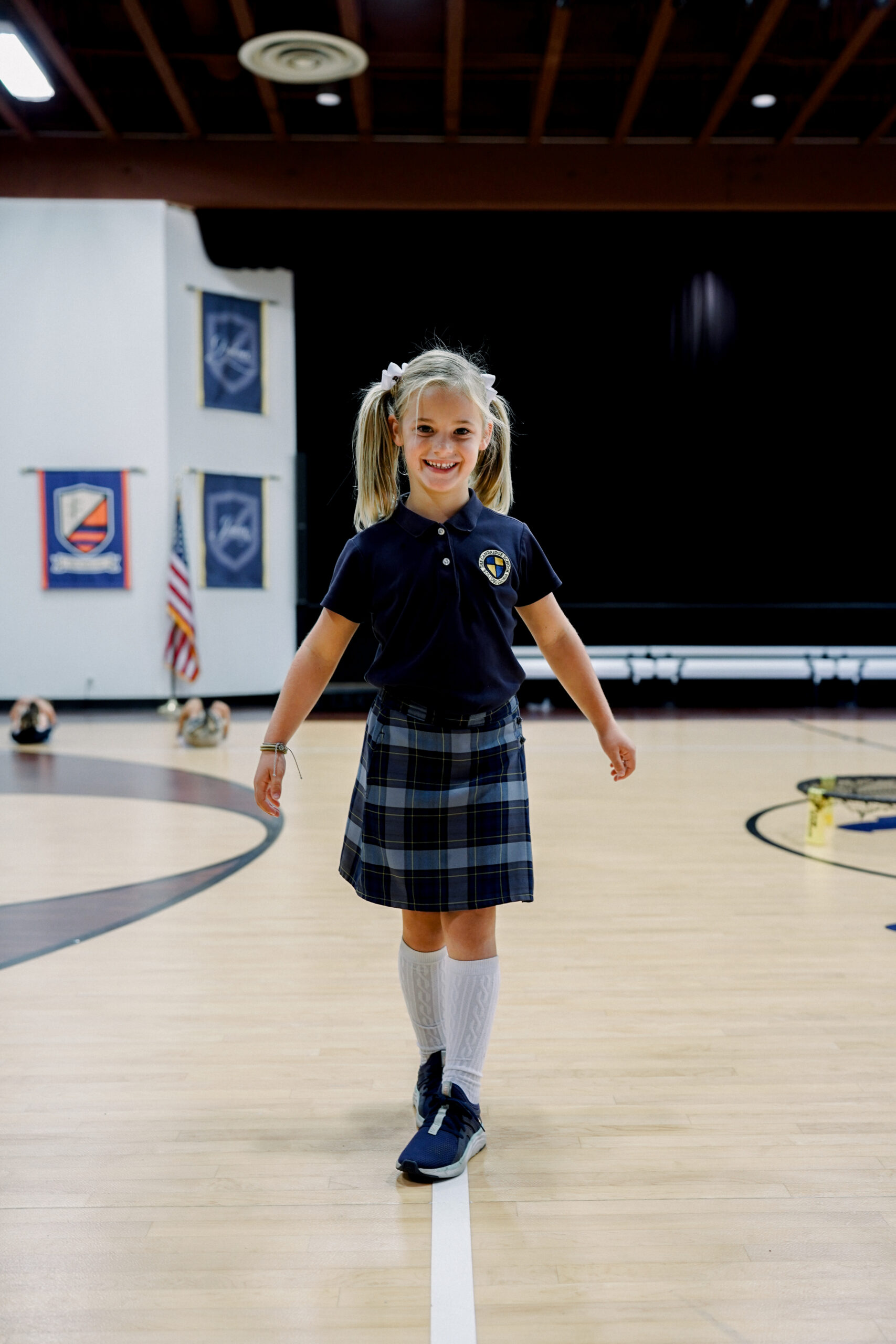 Over the years, researchers have noticed the less developed gross and fine motor skills in children. It isn’t as common anymore to see young children climbing trees or playing outside. In fact, today’s technology, whether watching television for long periods of time or passing time on a hand held device, has deteriorated this type of play, and not without consequence. We have seen it become harder for students to sit up straight in their chairs or pay attention for longer periods of time. Developing fine motor skills has become more difficult without the gross motor skills in place. These skills are necessary for success in their learning environments.
Over the years, researchers have noticed the less developed gross and fine motor skills in children. It isn’t as common anymore to see young children climbing trees or playing outside. In fact, today’s technology, whether watching television for long periods of time or passing time on a hand held device, has deteriorated this type of play, and not without consequence. We have seen it become harder for students to sit up straight in their chairs or pay attention for longer periods of time. Developing fine motor skills has become more difficult without the gross motor skills in place. These skills are necessary for success in their learning environments.
It is our goal to meet our student’s physical needs in order to create an environment for successful learning. Our teachers spend time with the students each week working on building their motor based skills and developing controlled movements. Such activities can be done while students are waiting in line for recess or during transition between subjects, and range from crawling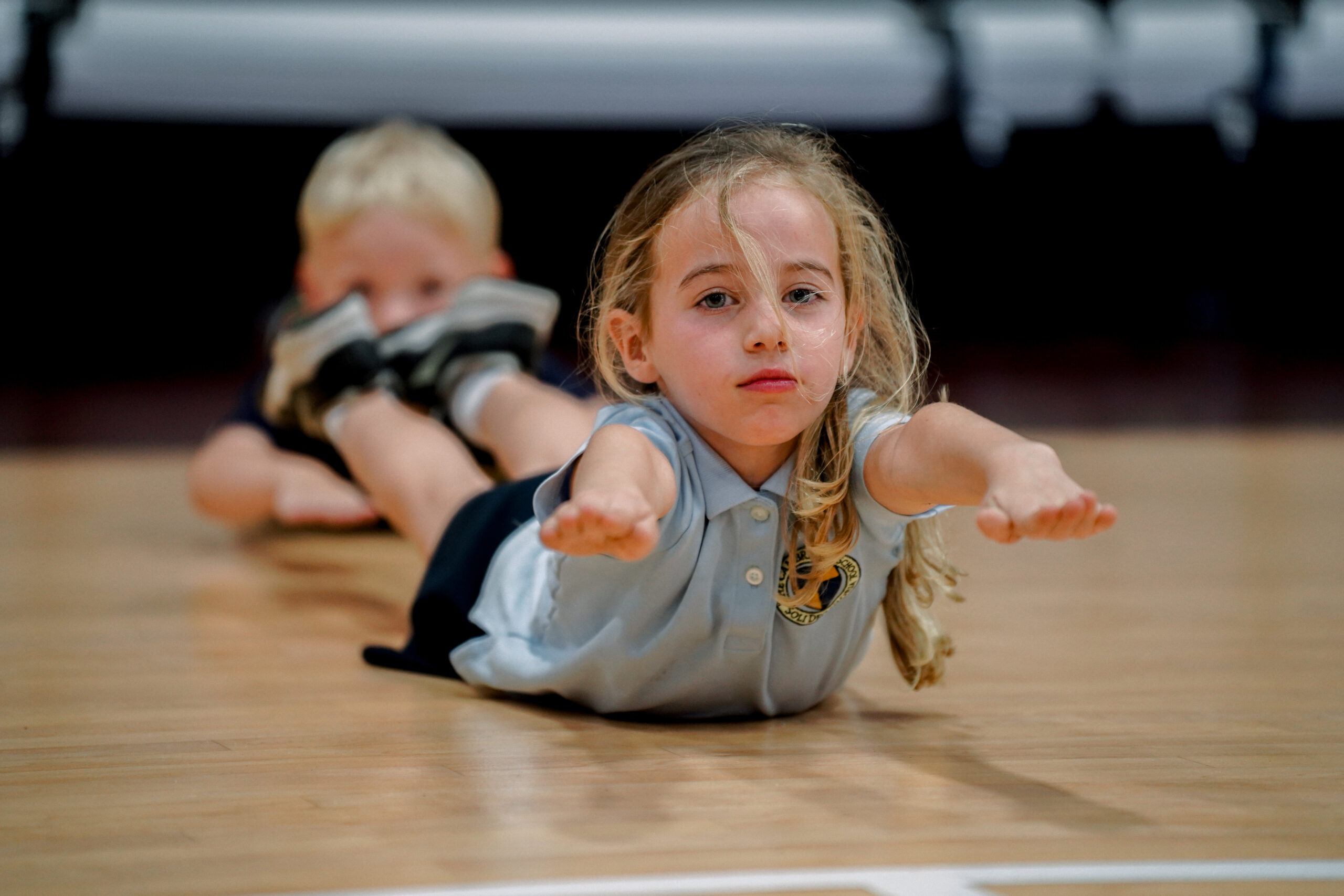 to their desks or jumping as they spell out words missed on a test. Overall the activities are designed to stimulate and develop the reflex, tactile, proprioceptive, vestibular, visual, and auditory systems. Our hope is for our students to strengthen their motor skills to further enhance their learning experience. Focusing on motor based skills has shown to improve handwriting, attention span, speaking, and behavior. As students continue to learn the connection between body, mind and soul, they’ll also grasp a fuller understanding of who they are as God’s creation.
to their desks or jumping as they spell out words missed on a test. Overall the activities are designed to stimulate and develop the reflex, tactile, proprioceptive, vestibular, visual, and auditory systems. Our hope is for our students to strengthen their motor skills to further enhance their learning experience. Focusing on motor based skills has shown to improve handwriting, attention span, speaking, and behavior. As students continue to learn the connection between body, mind and soul, they’ll also grasp a fuller understanding of who they are as God’s creation.

